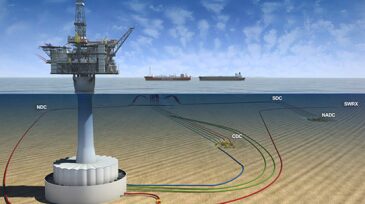Canada
-
Husky Energy awarded the EPCI contract for its $1.6-billion expansion project, West White Rose, to TechnipFMC. It includes the supply and installation of subsea equipment.
-
The decisions of Canada’s top court clarify when the duty to consult is triggered; confirmed that the Crown can discharge its duty to consult through the project approval process undertaken by the regulatory body; and illustrated how to, and how not to, discharge the duty.
-
On 16 June 2017, the Alberta Oil Sands Advisory Group released its report Recommendations on Implementation of the Oil Sands Emissions Limit Established by the Alberta Climate Leadership Plan.
-
The government of Canada has released its proposal for the first federal regulations on greenhouse gas emissions applicable specifically to the upstream oil and gas sector.
-
Canadian regulators are formally proposing rules to reduce methane pollution from the oil and natural gas sector.
-
The Supreme Court of Canada has unanimously clarified several features of the crown’s duty to consult with and accommodate indigenous populations before project approvals are granted.
-
Canada will become the world’s fifth-largest producer of crude oil in 2017. The solvent-assisted-SAGD poses the largest advancement in production techniques in the oil sands, and if scaled up, could further reduce extraction costs.
-
Oil production from the Canadian oil sands is big, growing, and its future is in doubt. The problem is the cost and time required to develop new production is not competitive now. While some big international oil companies are selling out, others are focused on changing the economics of growth.
-
The deal will transfer nearly 2 billion bbl of reserves to Canadian Natural Resources while bolstering Shell's downstream and carbon-capture role in support of oil sand development.
-
The potential of big data depends on the ability of companies to change the habits of its users.







